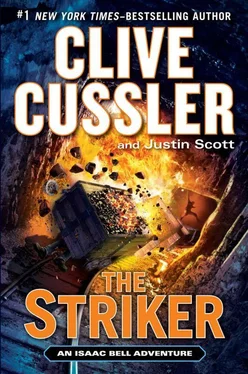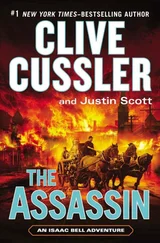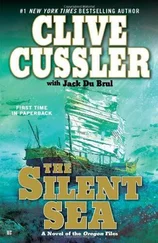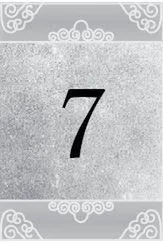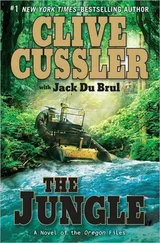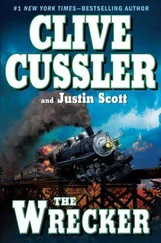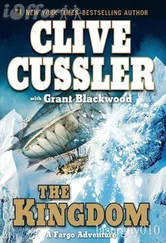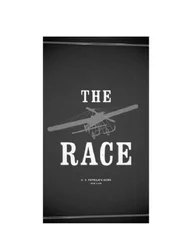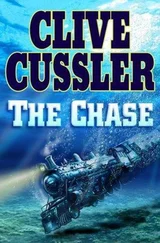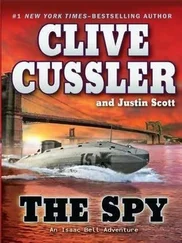“He’s got plenty of moxie, and Kisley and Fulton will show him what to do with it. Sir, I could really use the extra hand.”
Van Dorn looked dubious. “I’d have to speak with him, size him up.”
“But you already have spoken with him.”
“What? When?”
“I believe you have his card in your vest pocket.”
Van Dorn reached into his vest. “Jack Finnerty?”
Isaac Bell kept a straight face. “Based on all I’ve learned about coal for this case, Mr. Van Dorn, I wouldn’t bet the farm on supercoal.”
Van Dorn flushed red as his whiskers. His eyes narrowed to pinpricks of blue flame, and his mighty chest filled like a bull’s. Isaac Bell braced for the explosion. But, at last, the Boss laughed.
“ Flimflammed! You flimflammed me.”
“I had to demonstrate his moxie.”
“You did that, all right. Really had me going there— Well, at least I was flimflammed by a brother Irishman.”
Bell could no longer hide his smile.
“Now what are you smirking about?”
“Sorry to disillusion you, sir, but your ‘Irish brother’ is a direct descendant of the English and Dutch founders of New York — Archibald Angel Abbott IV, listed first in Society’s Four Hundred.”
* * *
The Congdon Building was more secure than most in Wall Street, tight as a bank.
Henry Clay entered by the basement service entrance, dressed in steamfitter’s overalls and carrying a ball-peen hammer, a pipe wrench, a measuring tape, and an inspection gauge with its thin metal gap gauges modified to pick locks. He knew the guards’ routine and eluded them easily. He picked open a lock, bounded up twelve flights of stairs without sweating or breathing hard, removed his overalls, picked two more locks in utter silence, and stepped suddenly through the back door of Judge James Congdon’s private office.
Clay saw immediate confirmation of the wisdom of his plan. The tough old bird glanced up from his desk startled but not one bit frightened. He had chosen well.
James Congdon was intrigued by the intruder.
He could summon help in an instant with a shout into the speaking tube or one of several candlestick telephones on his desk. Better yet, simply shoot him with a revolver from his desk. Or, best of all, he could activate his “lunatic stopper.” But for the moment, Congdon was curious. Why would such an elegant, well-dressed gentleman break in his back door?
As if to prove that he was as cultured as he looked, the intruder complimented the marble sculpture that dominated Congdon’s office with a connoisseur’s appreciation. “I commend your knowledge of antiquities.”
Judge Congdon uncapped the speaking tube. “Antiquities? You’re showing off your ignorance. Auguste Rodin carved that statue two years ago.”
“But unlike the prudish original, this superior copy of Le Baiser that you commissioned depicts the male form complete — in the classical Greek style — rather than draped, as it were, under a modest limb.”
Congdon snorted, “That’s a big-sounding way of saying he’s showing his tackle.”
The intruder flushed and lost his composure for an instant. “In the presence of such beauty,” he said stiffly, “I would consider an expression less crude.”
Congdon pulled a gun from his desk. “While I consider whether to have you beaten to a pulp or shoot you myself.”
“That is a privilege of wealth,” said Henry Clay. “But you would miss the greatest opportunity of your life. I will make an offer you will find irresistible.”
“I am rarely tempted.”
“But when you are, sir, you seize the opportunity.”
Clay cast a significant glance at Rodin’s passionate lovers. Then he nodded appreciatively at the bronze statuette on Congdon’s desk, which depicted the most recent of Congdon’s shapely young wives au naturel .
“My name is Henry Clay. I am a painter’s son by birth and a private detective by profession. I offer no threat, only promise. And I do it at great risk because you could have me beaten or killed.”
“So you’re a betting man?”
“Yes, sir. I am betting my life that you’ll see this opportunity for what it is.”
“What opportunity?”
“The opportunity to destroy the miners’ unions: the United Mine Workers in the east and the Western Federation of Miners in the west. Stop them dead, once and for all. It will be twenty years before another miner dares start a union, much less call a strike, anywhere on the continent. And here’s a sugarplum bonus for you. You will profit mightily knowing ahead of time to invest in businesses that will flourish when you destroy the unions.”
“By what means?”
“Every means. No holds barred.”
Congdon shook his head. “No. I risk everything if you are caught and turn blab-mouthed.”
“What would the word of a lowly detective be against the great Judge Congdon?”
Congdon fixed him with a gimlet eye. “‘The great Judge Congdon’ intends to be president of the United States. Unfortunately, that means convincing the ignorant people that he is above suspicion.”
“What could I blab? You can seal our deal with a nod. No signature, no contract. There is no way to record a nod.”
“Without a contract, you are betting on the groundless hope that I will reward you. What if I don’t?”
“I don’t need your reward.”
“Then why—”
“Here is all I need from you,” said Clay, and ticked items off on fastidiously manicured fingers. “Unlimited operating funds to do the job. Certain information that only you possess. Rail passes on all lines, and special trains to help me travel quickly about the continent. Permission to send and receive messages over the private closed telegraph wires leased by your brokers.”
Congdon interrupted with a sarcastic comment that the Interstate Commerce Commission forbid outsiders sending messages over leased wires.
Clay laughed. Brokers of stocks, bonds, and commodities bent that law day and night. “Speed and privacy are a matter of business.” He knew that he did not have to remind Congdon that owners and lessees of private wires got a jump on competitors who had to rely on Western Union’s slower public wires.
“In every city I operate, we will communicate swiftly and secretly through your branch offices.”
“Branch offices untraceable to me,” Congdon said sharply.
“Doesn’t a financier of your stature hold secret controlling interests in firms that lease private wires?”
Congdon ignored the flattery and demanded, “But what do you get out of this scheme?”
“Reputation. By rights, you will pay me handsomely when I succeed. But if you don’t — if you cheat me — it will not matter. I will be a made man.”
“How?”
“Henry Clay Investigations will become the detective agency to presidents and kings when the men who run this country learn who smashed the unions. When you are president, I, too, will be very big in Washington.”
Congdon mulled over Clay’s proposal. He was a famous judge of character. The detective, a robust physical specimen, possessed the steady gaze of a valuable man capable of finishing what he started. “What makes you so sure that this would appeal to me?”
“I have studied you, Judge Congdon. I understand you. I am a very good detective. I am the best.”
“You think you know me, do you? Have another look at my statue. Look close at The Kiss . Do you see anything unusual?”
Henry Clay did as Congdon ordered. He leaned close to the marble and let his eyes roam over the man and woman in passionate embrace. “I see a magnificent statue.”
“It draws you closer, doesn’t it?”
Читать дальше
